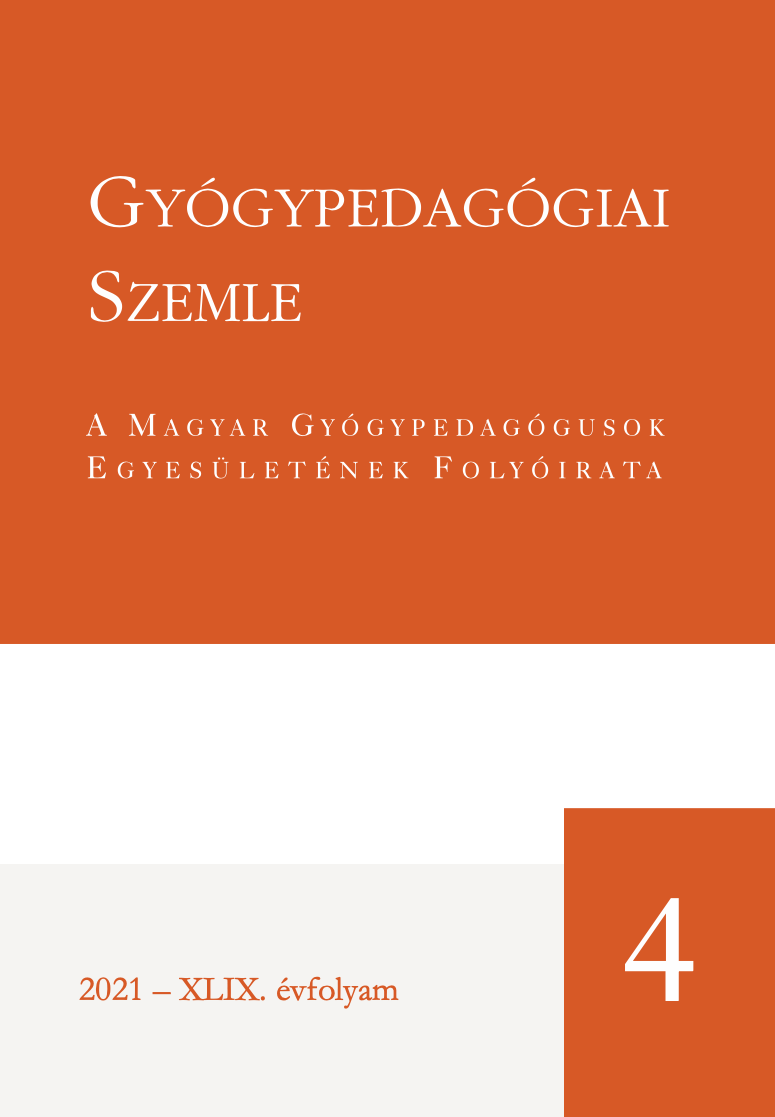Mainstream or special schools? Factors influencing parental decision on the forms of education for their children with autism
DOI:
https://doi.org/10.52092/gyosze.2021.4.1Keywords:
autism, mainstream school, special school, school choice, parental decision-makingAbstract
Background and aims: The multidimensional spectrum of autism involves a high degree of both within- and between-individual variability of patterns of behaviours and cognitive abilities. Therefore, children with autism need complex, individualized autism-specific educational intervention. This may take place either in mainstream or in special educational settings. Both have potential benefits and risks. Our study aims to understand better the factors influencing parents’ decision making when choosing between mainstream or special education.
Method: Our review of the international literature follows the PRISMA criteria. We have searched our keywords in the international databases of Web of Science and ERIC and in one journal, which initially resulted in a total of 548 items. Based on the inclusion and exclusion criteria, the title, abstract and full text were examined, and 13 relevant publications were identified and reviewed in detail.
Results: Parental decisions are mainly driven by parents’ perception of the unique needs and the happiness of their child. The process is characterized by significant uncertainty and distress, and limited experience of parental agency and partnership with professionals. Parents have strongly limited access to relevant information therefore informal sources play key role.
Conclusions: The international literature, too, points to the importance of providing parents with reliable information, achieving a real parent-professional collaboration and the involvement of the child with autism in the decision process –– and the further improvement of the conditions of mainstream education. The topic is under-researched internationally, though it is essential to understand the background of parental choices and help their decisions with more effective dissemination of current research findings.
Keywords: autism, mainstream school, special school, school choice, parental decision-making

